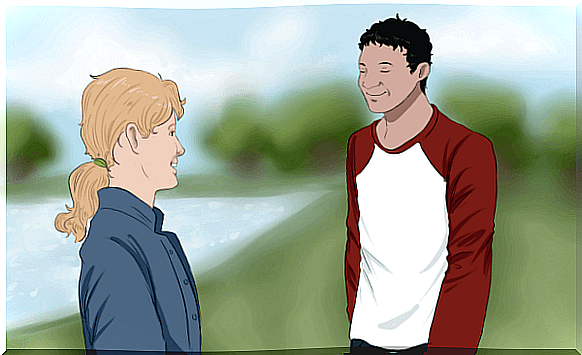Excessive Sincerity: Honesty Is Not Always Best

We have all said something during the day that was not entirely sincere, and we know it. A lie or lack of honesty can protect us from what would happen. If we interpret something that is happening as harmful, we tend to distort the truth in our favor. In this way, we protect our self-esteem and free ourselves from the possible negative consequences, and this may be better than engaging in excessive sincerity.
But the main cause of lack of sincerity is not always fear. Compassion for others can be something that makes us choose a little white lie. This type of lie is mild, hardly important and does not last long. It can be useful for everyone because it prevents unnecessary conflicts.
We are not trying to defend dishonesty, but we want to convey the idea that constant exaggerated sincerity is not the best thing either. Unless we want to end up in tense situations.
Psychologists talk about excessive sincerity to define people who see themselves as honest and brave, and therefore sincere towards others. They have no filters, although they may not even have been asked to share their opinion. In English, people talk about sincericide – a mixture of the words for sincerity and suicide.

This act tends to be seen as something ruthless, tactless and verbally irresponsible. Excessive sincerity creates conflicts in the environment. It can seem like rude behavior, and so you can really look at it.
In order not to be disliked by others, it is best to evaluate what you intend to say. Calculate whether the other person who will receive the message is willing to digest it emotionally.
Being sincere is not always a virtue because education and respect should always come first. Even more so if we are going to let go of something that is not useful or interesting to anyone. Spitting out everything you will think of is a sign of social immaturity, of not following the rules of the game.
How many of us have not briefly bothered someone who said that we are not wearing the best clothes or that he has seen our ex with another person? Finding the right context and moment to be silent is a virtue we should learn to value. There are some comments that are simply unnecessary or that can be uttered at other times.
We all have the right to know the truth, but we also have the right to set our own limits for this knowledge. The best thing for us as adults is to be emotionally strong and accept the discomfort in life. In this way, we can take action from a fair position.
The problem is that at times, the truth can really hurt us. Not everyone is prepared to receive news of a very negative or dramatic nature.

Imagine that you have been diagnosed with a very serious illness, would you then like to know if you are going to die? Would you prefer the truth to remain hidden or do you want to know how much time you have left? How would you like to receive this bad news?
As we have already mentioned, it is good for us to train ourselves to be able to cope with everything that life throws in our way. But it is no less true that sometimes it is better for the truth to be wrapped up. In the same way we do it for others to regulate how our messages are perceived.
If we are able to show empathy for the person, we will be careful not to hurt him. We will find the right word, as long as we do not say the exact opposite.
Being sincere without engaging in excessive honesty is an art. This means that you sit in the other person’s shoes and know whether the circumstances are optimal for him or her to receive the truth. Using the right verbal and non-verbal tools is also key.
Psychologist Rafael Santangreu says that in order to be at peace with oneself, one must always tell the truth. However, the same does not apply to others. In other words , we should not wrap up truths we already know because we will then fall into self-deception. It does not allow us to confront life in a satisfying way.
It is important that we are careful when it comes to the line between telling the truth and giving excessive criticism. It is not the same to say something truthful as “the meeting with the patient did not go very well” and ” you are a terrible psychologist who should stop forever “.
Engaging in excessive sincerity is not the best option. As with everything else in life, one can find virtue in balance.









